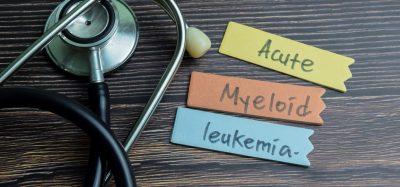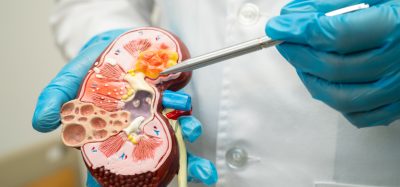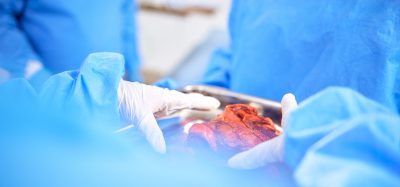An ethical shift in NHP research: iPSC-derived cardiomyocytes for safer pharmacology
Posted: 6 October 2025 | | No comments yet
As regulators move to phase out primate testing, NHP-derived iPSC cardiomyocytes are emerging as a scalable, ethical and scientifically robust alternative – offering drug developers a clear path to faster, more predictive, and more responsible innovation.
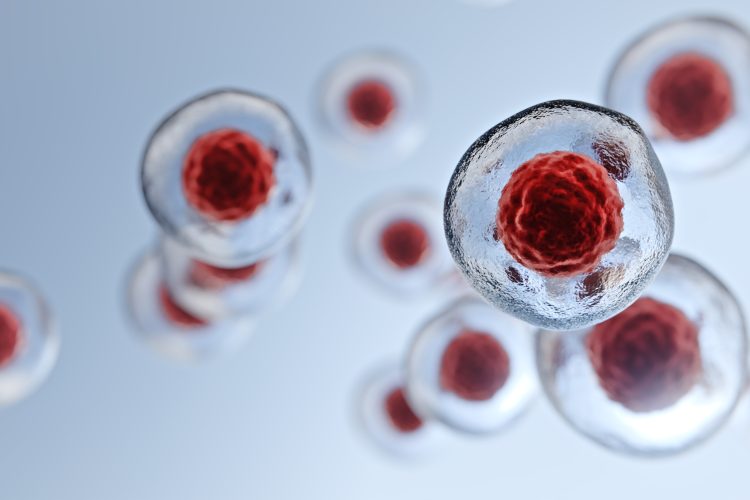

Introduction: A regulatory shift
Non-human primate (NHP) models are a cornerstone of cardiovascular safety assessment due to their close physiological and genetic resemblance to humans. However, ethical, logistical and regulatory pressures are driving the industry to seek more human-relevant alternatives in preclinical safety testing.
NHP studies, including those involving cardiomyocyte transplantation, may soon become the exception rather than the norm.
In April 2025, the FDA announced a New Approach Methodologies (NAMs) Roadmap, launching a pilot program that allows data generated from non-animal methods like in vitro human cell models to support regulatory submissions for monoclonal antibodies and biologics.¹ This is a game-changing shift: NHP studies, including those involving cardiomyocyte transplantation, may soon become the exception rather than the norm.
Our industry’s mission is crystal clear: to reconcile scientific rigor with greater ethical responsibility. The next step in the transformation of cardiovascular safety research depends on harnessing the advantages of NHPderived induced pluripotent stem cells (iPSCs).
Biomarkers are redefining how precision therapies are discovered, validated and delivered.
This exclusive expert-led report reveals how leading teams are using biomarker science to drive faster insights, cleaner data and more targeted treatments – from discovery to diagnostics.
Inside the report:
- How leading organisations are reshaping strategy with biomarker-led approaches
- Better tools for real-time decision-making – turning complex data into faster insights
- Global standardisation and assay sensitivity – what it takes to scale across networks
Discover how biomarker science is addressing the biggest hurdles in drug discovery, translational research and precision medicine – access your free copy today
Limitations of conventional NHP cardiomyocyte models
Limitation A: ethical and logistical challenges
While NHP studies offer translational value especially for antibodies and adeno-associated virus (AAV) therapies due to their immunological and physiological similarity to humans, they entail substantial burdens. Ethical concerns, combined with public and legal scrutiny, are escalating operational costs and complicating research.2 Additionally, NHP programs are expensive and supply sensitive, with frequent shortages delaying study timelines at great cost, in terms of both dollars and days.
Limitation B: variability and reproducibility issues
Non-human primates (NHPs) display significant physiological variability, which can limit the consistency of cardiovascular safety data. For example, routine cardiovascular assessments often rely on restraint-based ECG and arterial blood pressure measurements. In studies using restraint methods (eg, manual or chair immobilisation), NHPs demonstrated tachycardia, heightened blood pressure and ECG signal artifacts. This confounded results and potentially masked or exaggerated drug-induced cardiac effects.³ Stress-induced variability of this kind hinders the sensitivity and reliability needed for therapeutic safety pharmacology.
The FDA NAMs roadmap: A new regulatory horizon
The FDA’s April 2025 announcement outlined a detailed blueprint to phase out mandatory animal testing, beginning with monoclonal antibodies and expanding to other therapeutic modalities (eg, small molecules, cell therapy and gene therapy, etc.).¹ The agency’s roadmap specifically emphasises replacing animal studies with NAMs such as human iPSC-derived models, organ-on-chip, in silico platforms and AI tools.²
The mission endeavors to expedite drug development, reduce costs and emphasise human-centric safety data. The FDA’s pilot program will validate NAMs within real-world drug pipelines, providing groundwork for future guidance and possibly global harmonisation.² This regulatory shift has been recognised across the scientific community, with leading journals noting the significance of this policy change.4 The National Institutes of Health (NIH) has also announced that it will no longer exclusively fund animal-based experiments, thus encouraging researchers to include nonanimal methods in their proposals.⁵
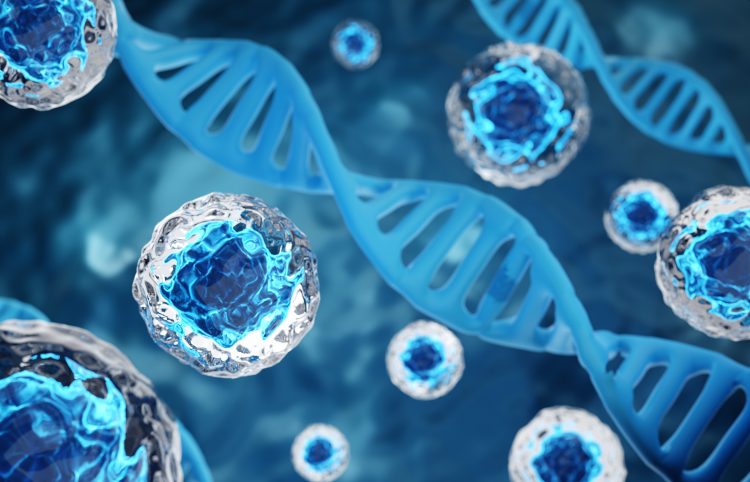

NHP-derived iPSCs are stem cells reprogrammed from non-human primate tissue, used to generate heart cells in the lab for safer, more ethical drug testing. Credit: Shutterstock / e-crow
NHP‑ derived cardiomyocytes – the technological breakthrough
Developing cardiomyocytes from NHP‑derived iPSCs constitutes a substantial advancement for preclinical cardiovascular research. These cells provide a scalable, predictable and ethically aligned alternative that bridges traditional animal models and human-relevant assays.
Differentiation and consistency: Research has shown that NHP iPSCs can be reliably reprogrammed under feeder-free, chemically defined culture conditions, achieving pluripotency from fibroblasts of various NHP species.6 Optimised differentiation protocols (combining specific small molecules and growth factors) can deliver ventricular-lineage cardiomyocytes with >90 percent purity within 10-12 days, with research showing that cell seeding density adjustment is a key to reducing variability across batches.7
Translational promise: Functional characterisation demonstrates that these NHP-derived cardiomyocytes have native contractile and electrophysiological profiles. Studies show they exhibit spontaneous beating, respond appropriately to pharmacological agents and express critical cardiac markers under chemically defined conditions.6 Furthermore, the translational relevance is supported by successful in vivo implantation studies in macaque models, where cardiomyocyte transplantation has shown measurable improvements in cardiac function.³
Ethical, scalable alternative: By replacing live NHP models, NHP-derived cardiomyocytes significantly reduce ethical and logistical burdens. Researchers gain access to reproducible, batch-standardised cell models that align with the FDA’s NAMs roadmap and global trends toward non-animal safety testing.4 These cells support large-scale cardiotoxicity assays and early drug screening across modalities, offering sustainable and cost-effective alternatives without sacrificing scientific rigor.
Operationalising NHP‑derived cardiomyocytes in drug discovery
As regulatory agencies push for new approach methodologies, practical implementation becomes a matter of importance. NHP‑derived cardiomyocytes provide an actionable, human-relevant model that easily integrates into existing drug safety and translational research workflows. Translating the conceptual benefits of iPSC technology into routine assay formats empowers researchers to realize real-world benefits for their drug discovery pipelines:
- Enhanced predictivity: These cells retain physiological mechanisms native to NHPs, facilitating accurate analysis of species-specific toxicities and improving confidence when translating results from preclinical to clinical stages
- Standardised reagents: Controlled, batch-based iPSC production ensures reproducibility and assay consistency across experimental runs, dramatically reducing the variability inherent in primary tissue or live-animal studies, as demonstrated in recent seeding density optimisation studies7
- Regulatory alignment: Incorporating NAMs – such as NHP‑derived cardiomyocyte assays – positions sponsors to participate in FDA pilot programs and align with upcoming guidance, reducing regulatory uncertainty and improving approval readiness1,4
- Resource efficiency: With scalable iPSC platforms, the need for maintaining NHP colonies – along with their associated ethical, logistical and housing costs – is significantly reduced; this permits more studies to be conducted under tighter timelines and budgets, without sacrificing data quality.
Deploying NHP‑derived cardiomyocytes in place of live-animal models helps drug developers to maintain translational fidelity while improving throughput, reducing costs and aligning with regulatory expectations. This clears the way for a more modern paradigm for cardiotoxicity assessment.
A clear path forward: ethical, predictive and scalable solutions
The FDA’s 2025 NAMs Roadmap is a milestone in preclinical research; it creates both regulatory clarity and scientific urgency around the adoption of non-animal alternatives.1,4 The roadmap will help guide drug developers in how they approach safety, efficacy and ethical responsibility, as the broader scientific community has recognised.
NHP-derived iPSC cardiomyocytes are an attractive solution because they are scientifically validated, ethically sound and scalable.
NHP-derived iPSC cardiomyocytes are an attractive solution because they are scientifically validated, ethically sound and scalable. They also address the enduring challenges associated with animal-based research (ie, consistency, reproducibility and translational relevance), while fitting neatly into shifting regulatory frameworks.
Going beyond the technical benefits, these models represent a broader mindset shift. Industry discussions have highlighted that companies must now bridge decades of accumulated animal data with new methodologies that better reflect human biology. The true opportunity is in using advanced models like NHP-derived cardiomyocytes to replace traditional methods and advance the science of predictive toxicology and drug safety assessment.
Potential advantages for companies that adopt early include:
- Demonstrating regulatory readiness
- Enhancing operational efficiency
- Building public trust
Integrating these models gives organisations a wonderful opportunity to position themselves as ethical leaders who are equally committed to innovation and responsibility.
The path forward is clear. Implementing iPSC-based technologies and staying ahead of regulatory shifts allows us to enhance drug development pipelines, reduce reliance on non-human primates and ultimately improve patient outcomes. Importantly, we can achieve this at no cost to scientific rigor.
References
- S. Food and Drug Administration. (2025, April 10). FDA Announces Plan to Phase Out Animal Testing Requirement for Monoclonal Antibodies and Other Drugs. FDA. Published 2025 April.
- S. Food and Drug Administration. (2025). Roadmap to Reducing Animal Testing in Preclinical Safety Studies. FDA. Published 2025.
- Valentin, J-P., Delaunois, A., Lainee, P., et al. Chapter 22 – Functional Assessments in Nonhuman Primate Toxicology Studies to Support Drug Development. The Nonhuman Primate in Nonclinical Drug Development and Safety Assessment. Published 2015 December.
- News in Brief. FDA pushes to replace animal testing. Nature Biotechnology. Published 2025 May.
- Physician’s Committee for Responsible Medicine. In Landmark Shift, NIH Announces No More Exclusive Funding for Animal Experiments. org. Published 2025 July.
- Stauske, M., Polo, I., Haas, W., et al. Non-Human Primate iPSC Generation, Cultivation, and Cardiac Differentiation under Chemically Defined Conditions. Published 2020 May.
- Tereshchenko, Y., Petkov, S., & Behr, R. The Efficiency of In Vitro Differentiation of Primate iPSCs into Cardiomyocytes Depending on Their Seeding Density and Cell Line Specificity. International Journal of Molecular Sciences. Published 2024 May.
Meet the authors


Silke holds a PhD in cell biology and immunology from the University of Hannover, Germany, and has over 20 years of experience in stem cell-based models for drug discovery. She is passionate about developing and applying functional iPSC cardiomyocyte assays to assess the efficacy and safety of novel drug therapies.
Before joining Ncardia, Silke led cross-functional teams at stem-cell technology companies and worked as an independent scientific consultant for eight years, providing expertise in assay development for drug discovery and toxicology.
At Ncardia, Silke applies her extensive experience to advance innovative toxicology solutions, supporting the development of safer and more effective therapeutics.


Mariana holds a PhD in molecular biology from the University of SanMartin (Buenos Aires) and has worked at several universities in the US for more than eight years, specializing in stem cell biology. Throughout her experience in academic research, she gained distinct knowledge and expertise in both disease modelling and biobank building and in the differentiation of iPSCs into cardiac and neuronal cell types.
In 2022, Mariana joined the manufacturing team at Ncardia, where she pursues new iPSC manufacturing procedures and scale-up processes to support their application in regenerative medicine and drug discovery.


Jeroen de Groot is a highly accomplished R&D and business executive who has an extensive background leading international contract research organisations, with particular experience in innovation, drug discovery and development. Jeroen was previously Chief Operation Officer Early Discovery at Charles River Laboratories, where he spent almost a decade. He also worked at contract research firm Galapagos and, prior to that, spent 13 years at TNO, where he began his career as a bench scientist and was involved in research into bone & joint diseases, inflammatory & degenerative diseases, ADME, pharmacokinetics & human studies.
He studied biology at Leiden university, and earned a PhD at Utrecht University Medical Center & TNO.
Related topics
Animal Models, Antibodies, Assays, Biologics, Cell Cultures, Cell-based assays, Drug Development, Induced Pluripotent Stem Cells (iPSCs), Organ-on-a-Chip, Stem Cells, Toxicology
Related conditions
Cardiomyocyte transplantation, Cardiotoxicity, Tachycardia
Related organisations
Ncardia




